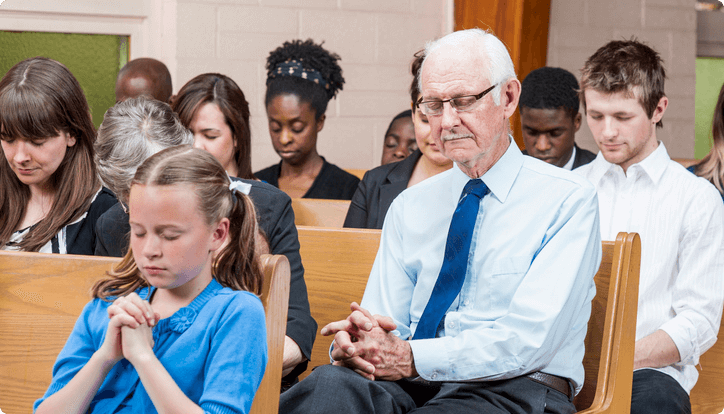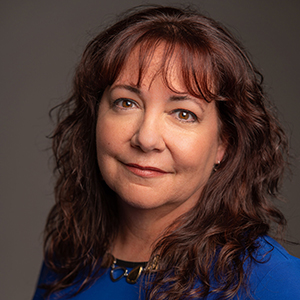Get Your Free Mesothelioma Guide

Find a Top Mesothelioma Doctor

Access Help Paying for Treatment

Many people with mesothelioma rely on spiritual or religious beliefs and practices to cope with their condition. Spirituality helps mesothelioma patients cope with uncertainty and what they cannot control. Spiritual support is available through loved ones, spiritual leaders and places of worship.

The physical and psychological effects of cancer take a toll on patients and their families. Spiritual support helps people cope with these hardships, especially when the diagnosis is terminal.
Spirituality encompasses an individual’s connection to and beliefs around a higher power. Some people identify spiritually with a particular religion, while others practice spirituality in a nondenominational way.
Spiritual practices extend beyond prayer and attending religious services or places of worship. Spirituality may involve meditation, interacting with nature, spending time with loved ones and volunteering your time to a greater good.
Spirituality helps people make meaning and find purpose in life. These concepts become particularly important when faced with a terminal diagnosis such as mesothelioma.
However, some people feel spiritually distressed after a cancer diagnosis. Patients and caregivers may develop doubts about their beliefs in the wake of such life-altering news.
Cancer patients may experience spiritual pain in their search for personal meaning, purpose and connection. They may experience a loss of faith along with feelings of despair.
Spiritual distress may come off as depression, but spiritual support from trusted loved ones and spiritual leaders can help cancer patients find meaning, purpose, hope, comfort and a sense of inner peace.
According to data collected by the Centers for Disease Control and Prevention (CDC) in 2002, 68.5% of cancer patients say they pray for their health. A 2021 research report noted that palliative care is essential for managing the symptoms of mesothelioma and providing emotional, psychological and spiritual support.
Research from the National Cancer Institute shows that doctors who support the spiritual needs of patients — whether through prayer or referral to a chaplain — may improve patients’ quality of life.
Cancer patients who receive spiritual support often report improvements in physical health, according to a 2015 study published in the journal Cancer. They also are more likely to find meaning in their suffering.
Spiritual support is offered by chaplains in hospitals and cancer centers . A chaplain is a representative of a religious tradition who offers spiritual services at a secular place such as a hospital or school.
Chaplains offer what is called “compassionate presence” by making themselves available to people with cancer to feel connected to another person and potentially feel connected to God.
Chaplains offer spiritual support and do not attempt to convert patients to any particular religion.
The types of spiritual support offered in cancer centers typically include:
If you prefer to speak with a spiritual leader from a specific religion, the chaplain can arrange that for you. Chaplains maintain connections with local faith group leaders such as rabbis, priests, pastors and monks.
A chaplain will spend time talking to you about spiritual concerns, pray with you and offer solace and emotional support. Chaplains offer this support to caregivers and family members as well.
These services are available at nearly any time. Many patients like to meet with a chaplain before surgery to calm fears and find a sense of peace amid feeling a lack of control.
Get Your Free Mesothelioma Guide

Find a Top Mesothelioma Doctor

Access Help Paying for Treatment

Cancer patients may turn to places of worship within their community for support. Local churches, temples, synagogues and mosques serve as valuable sources of spiritual support.
Most places of worship have an open invitation to anyone seeking spiritual support or guidance. You can do an online search to learn more about places of worship in your area. You can also ask your cancer center’s chaplain for recommendations.
Call places of worship to inquire about the types of spiritual support and services they offer.
Addressing spiritual needs is a core component of hospice care.
Hospice providers around the U.S. provide spiritual care to patients and their family members. Each hospice organization offers a variety of spiritual services, including spiritual counselors, spiritual care coordinators and volunteers.
Spiritual care counselors are a lot like a chaplain at a hospital. These counselors do not attempt to convert patients to any particular religion. They only offer support and care in a time of need.
Whether receiving cancer care at home, in a hospital or at a specialized cancer center, spiritual support is available to people with cancer free of charge. Chaplains, religious leaders and spiritual counselors are among the primary go-to sources for support.
Patients can also reach out to family, friends and loved ones for spiritual support. Together, you can pray, volunteer, attend religious services or spend time outdoors.
Spiritual support comes in many forms, and it often brings people closer together.
Recommended ReadingStay up-to-date on treatment, research, clinical trials, doctors and survivors
The information on this website is proprietary and protected. It is not a substitute for professional medical advice, diagnosis or treatment. Any unauthorized or illegal use, copying or dissemination will be prosecuted. Please read our privacy policy and terms of service for more information about our website.
This website and its content may be deemed attorney advertising. Prior results do not predict a similar outcome.
The Mesothelioma Center’s claim as the most trusted resource is based on our more than 150 5-star Google and BBB reviews. Our organization also helps more than half of all mesothelioma patients annually diagnosed.
Your web browser is no longer supported by Microsoft. Update your browser for more security, speed and compatibility.
If you are looking for mesothelioma support, please contact our Patient Advocates at (855) 404-4592
The Mesothelioma Center at Asbestos.com has provided patients and their loved ones the most updated and reliable information on mesothelioma and asbestos exposure since 2006.
Our team of Patient Advocates includes a medical doctor, a registered nurse, health services administrators, veterans, VA-accredited Claims Agents, an oncology patient navigator and hospice care expert. Their combined expertise means we help any mesothelioma patient or loved one through every step of their cancer journey.
More than 30 contributors, including mesothelioma doctors, survivors, health care professionals and other experts, have peer-reviewed our website and written unique research-driven articles to ensure you get the highest-quality medical and health information.
My family has only the highest compliment for the assistance and support that we received from The Mesothelioma Center. This is a staff of compassionate and knowledgeable individuals who respect what your family is experiencing and who go the extra mile to make an unfortunate diagnosis less stressful. Information and assistance were provided by The Mesothelioma Center at no cost to our family.LashawnMesothelioma patient’s daughter


Whitmer, M. (2023, December 6). Spiritual Support for Mesothelioma Patients. Asbestos.com. Retrieved December 18, 2025, from https://www.asbestos.com/support/spiritual/
Whitmer, Michelle. "Spiritual Support for Mesothelioma Patients." Asbestos.com, 6 Dec 2023, https://www.asbestos.com/support/spiritual/.
Whitmer, Michelle. "Spiritual Support for Mesothelioma Patients." Asbestos.com. Last modified December 6, 2023. https://www.asbestos.com/support/spiritual/.

Dana Nolan, MS, LMHC, is a licensed mental health counselor who leads The Mesothelioma Center’s monthly support group. She specializes in working with people affected by cancer. Dana has experience with inpatient and outpatient counseling, and clinical research in the U.S. and Australia. Dana practices in Altamonte Springs, Fla.
Our fact-checking process begins with a thorough review of all sources to ensure they are high quality. Then we cross-check the facts with original medical or scientific reports published by those sources, or we validate the facts with reputable news organizations, medical and scientific experts and other health experts. Each page includes all sources for full transparency.
Please read our editorial guidelines to learn more about our content creation and review process.
